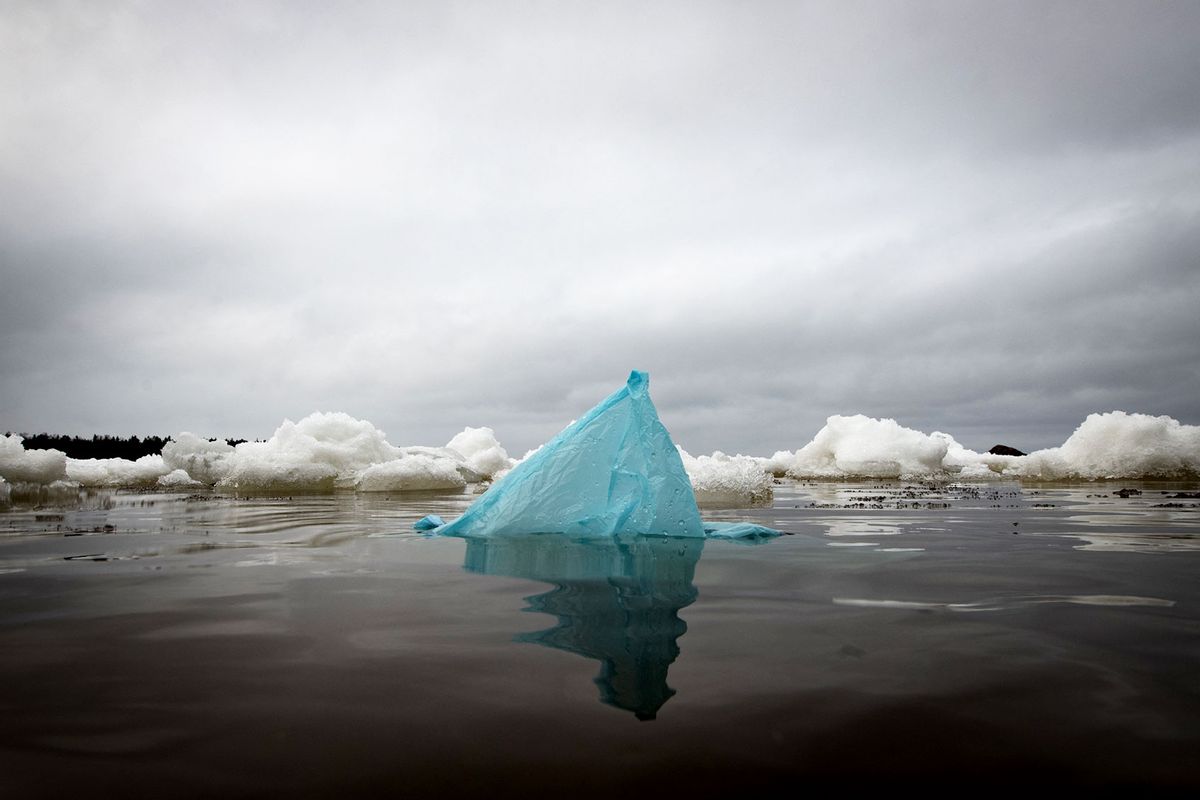Plastic pollution arguably poses as much of a threat to humanity's survival as climate change. It enters our food and water, and therefore our bodies, and has been linked to diseases from infertility to cancer. Plastic pollution is also clogging up our ocean, with giant piles and random junk alike destroying the lives of millions of sea turtles, seabirds and marine mammals. The plastic pollution problem is so insidious that so-called microplastic particles have even made their way into our blood. Needless to say, experts agree that the problem is extremely serious and needs to be solved.
"This can be achieved by accelerating three key shifts – reuse, recycle, and reorient and diversify – and actions to deal with the legacy of plastic pollution."
But experts say the plastic pollution problem may not be intractable. At least that's the conclusion of a recent report from the United Nations. Their analysis claims that the problem of plastic pollution can be ameliorated if human beings act now.
The in-depth report lays out methods for managing the massive accumulation of plastic waste on Earth. After all, putting a plug in the deluge of plastics entering our environment every day is only one part of the challenge; the other part is cleaning up the mess that has already been made. The study's authors offer a complex web of solutions that range from regulations on industries which create and use plastics to creating financial incentives for businesses to remove existing plastics in the environment.
"The way we produce, use and dispose of plastics is polluting ecosystems, creating risks for human health and destabilizing the climate," Inger Andersen, Unep's executive director, said in a statement. "This report lays out a roadmap to dramatically reduce these risks through adopting a circular approach that keeps plastics out of ecosystems, out of our bodies and in the economy.
Andersen added, "Crucially, the report demonstrates that the transformation would provide economic and social wins. Governments and the private sector would save money and hundreds of thousands of new jobs would be created."
Want more health and science stories in your inbox? Subscribe to Salon's weekly newsletter The Vulgar Scientist.
One of the primary reasons that experts are concerned about plastic pollution is that many plastic polymers contain chemicals known as "endocrine disruptors." As their name indicates, endocrine disruptors can interfere with the production of hormones in the body. Many endocrine disruptors commonly used in plastic polymers have been linked to precipitously plummeting sperm counts all over the world.
"First society needs to identify and agree we have a very serious problem; this takes time like climate change," Bjorn Beeler, general manager and international coordinator at IPEN — International Pollutants Elimination Network — told Salon by email last year. "Scientists knew in the 1970s/80s climate change was coming due to [greenhouse gas] emissions, and now we are discussing adaptation and [the] climate crisis 40+ years later (late). So to curb the threat, we need to define the problem, then turn off the toxic chemical tap."
If rates of human sperm counts continue to fall as they have been over the past few decades, the human species could face a mass infertility crisis by the end of the century. Although it is not confirmed that plastic pollution is entirely responsible for this crisis — other factors from the obesity epidemic to widespread alcohol and drug use may also play a role — many scientists believe it is implicated.
Dr. Shanna Swan, a professor of environmental medicine and public health at Mount Sinai School of Medicine in New York City who has been a trailblazer on this issue, explained why for Salon last year.
"Chemicals in plastic (phthalates, bisphenols and others) as well as pesticides, lead and other environmental exposures are linked to impaired reproduction including sperm count and quality," Swan explained. "Some, like phthalates and BPA, have a short half-life in the body (4-6 hours), so it is possible to reduce the body's exposure if we can stop using products containing these."
Until the problem is contained, studies indicate that the average human will continue to consume the equivalent of one credit card worth of plastic each week. Most of this is in the form of microplastics, or a plastic particle that is five millimeters or less across or in length.



Shares